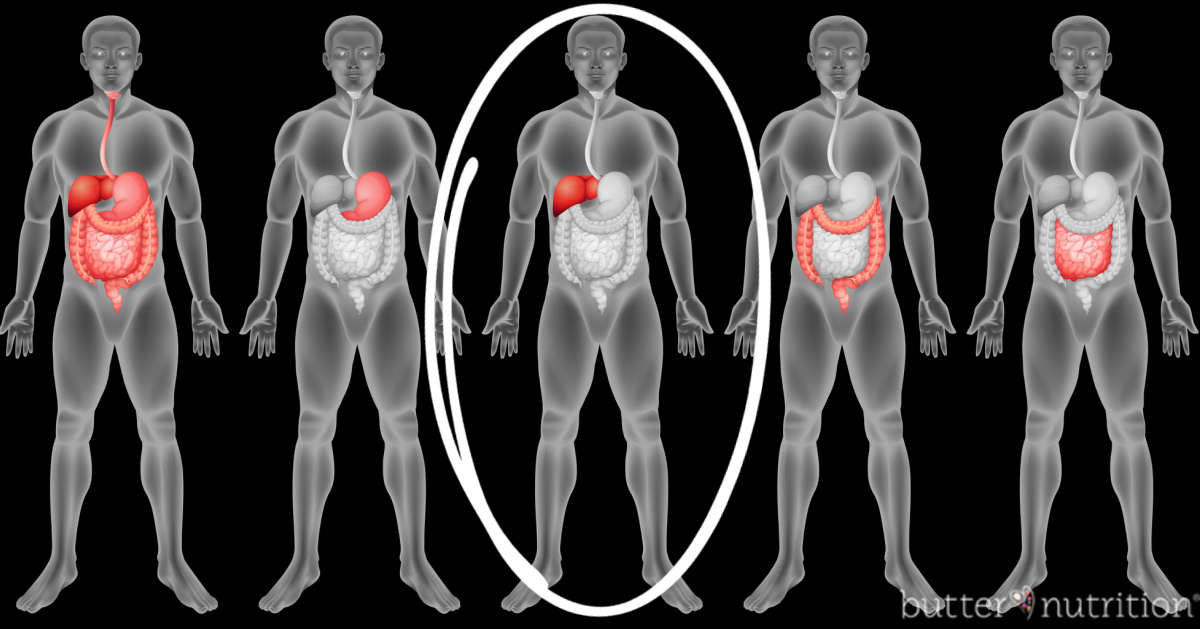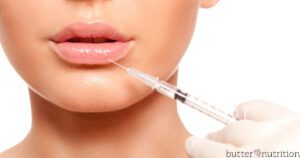 I can't tell you how many clients I talk to that have just done a bunch of 'gut work' but don't find themselves feeling much better. Most of these gut work protocols revolve around the heavy use of antimicrobials (often multiple rounds), which while they help reduce bad bacteria, they also reduce your beneficial bacteria, which can have catastrophic effects on your gut (and can cause liver injury).
I can't tell you how many clients I talk to that have just done a bunch of 'gut work' but don't find themselves feeling much better. Most of these gut work protocols revolve around the heavy use of antimicrobials (often multiple rounds), which while they help reduce bad bacteria, they also reduce your beneficial bacteria, which can have catastrophic effects on your gut (and can cause liver injury).
You can quite literally kill some good bacteria species out of existence, and they won't come back.
So, if the emphasis on getting rid of the bad bacteria is not helpful, what is the solution?
The Liver-Gallbladder Axis Governs Digestion
In nutritional therapy, biliary issues, especially biliary stasis (or sluggish bile flow) is something that we are taught to never ignore.
And I'm telling you, it all comes back to liver and biliary issues in clients with chronic gut symptoms that don't *easily* resolve.
The liver-gallbladder axis governs digestion in so many ways. A sick liver = poor bile acid composition & bile regulation = bad gut environment resulting in symptoms like:
-mood issues (anxiety and depression are big here)
-constipation
-diarrhea
-bloating
-systemic inflammation (from an overgrowth of endotoxin producing gram negative bacteria)
-sensitivity to everything (foods, supplements, environment, etc.)
This is why so many people get reoccurring episodes of SIBO, LIBO, dysbiosis etc., because they are just chasing the gut and ignoring the liver/gallbladder. That's why you see those chronically focusing on their gut and ignoring the liver don't actually get better. It keeps coming back.
How The Liver Impacts the Gut
Analogy time - I want you to think of your biliary tract as a river connecting your liver to your small intestines. Your liver in a sense flags toxins, collects them for removal and dumps them in your 'river of bile' to flow into your digestive system and hopefully make it out of your body via your stool.
But what happens if your bile is thick and sluggish like a stagnant river that's just not moving fast enough? Toxins are not getting out of your body fast enough and your bile is not flowing like it must to have the therapeutic anti-microbial impact on your gut microbiome keeping overgrowth 'in check.'
And what happens if once these toxins in your bile acids finally make it to your small intestines but then don't have anything to cling to (i.e., fiber, specifically soluble fiber)? They can recirculate because 95% of your bile acids are absorbed and recycled at the end of your small intestines called the ileum (this is called enterohepatic circulation).

If you're still following, you now know that sluggish or decreased bile flow and recirculating toxins can impact your gut. In a sense, your liver and gallbladder can poison your gut environment.
A 2021 study illustrates the role of bile acids (BA) in regulating the bacterial ecosystem of the gut quite well:
"The decreased levels of fecal BAs promote depletion of Firmicutes, particularly Blautia and Ruminococcus species, and expansion of proinflammatory pathogenic bacteria of the phylum Proteobacteria, particularly Enterobacteriaceae. This is because colonic microbial groups are responsible for deconjugation and 7-alpha dehydroxylation of BAs, and it is hypothesized that the presence of microbe toxic BAs (particularly deoxycholic acid [DCA]) in the intestine is one of the factors that keep undesirable microbial populations under control" [1]
In addition, Dr. Ray Peat has been talking about this for a long time: "I see bowel toxins rather as a relatively late-acting factor that accelerates a process which develops for other reasons. Once our detoxifying mechanisms begin to fail, bowel toxins pass the bowel with relative ease, and rapidly destroy the remaining systems of defense and detoxification. The altered hormonal environment and weakened digestion of an aging organism create a new balance between the animal and the bowel flora, sometimes allowing the proliferation of more toxic flora."
How To Support Your Liver/Gallbladder Axis
How do you start to turn the table on your symptoms and support your liver and biliary health?
There are five super easy ways to get started:
- Learn about what's increasing your liver toxicity (and impacting your digestion). A state of toxicity to me is loosely defined as accumulating toxins faster than you are able to excrete them. This might involve mineral (HTMA) and blood testing to learn more about your iron, vitamin A, and copper levels. It also might involve gut testing to see what kind of state your gut is in and how best to support it. We offer these services to clients around the world.
- Eat more fiber - this helps to passively support detoxification, and a low-fiber combined with a toxic diet and lifestyle is probably the #1 dietary problem impacting your health. However, if you're too toxic and/or have a liver injury, fiber won't be tolerated, as it will be too advanced and aggressive for you (ie. make you feel awful).
- A few big benefits of fiber:
- delays gastric emptying - keeping you fuller longer while aiding in blood sugar management and mood
- feeds your good gut bacteria - encouraging a healthy gut microbiome, reduced dysbiosis and increased internal production of vitamins (especially b-vitamins and K2)
- reduces constipation (specifically insoluble fiber)
- aids in binding toxins and bile acids for excretion supporting liver and gallbladder function in a very passive way (specifically soluble fiber). If you need a fiber reminder, the best sources of soluble fiber are:
- beans/legumes (if you are sensitive to beans, start slowly and try the brand 'Eden' which contains the seaweed Kombu to help reduce the raffinose in beans that can cause gastric discomfort)
- oats
- other whole grains
- fruits
- vegetables
- A few big benefits of fiber:
- Eat enough high quality animal protein. Protein deficiency by itself can impair liver detoxification.
- Take less supplements (find out what nutrients your body needs and forget about the rest!)
- Be mindful of the impact of Rx and over the counter drugs on your liver (i.e. liver injury). Antibiotics, pain meds and accutane are big here.
Need help?
Ready to learn more about what's going on in your body and what you can do to support it? There's a number of ways to get started:
Always keep digging to find *your* health answers. And don't be fearful of asking for help.
PIN IT:
References:
- https://www.jcehepatology.com/article/S0973-6883(21)00222-X/fulltext
- http://www.karenhurd.com/
- https://www.mdpi.com/2076-2607/10/9/1792







John Crossley says
Hi Catherine.. I'm sure u get tons of mail, so I will be very brief.. I've been reading your posts on Facebook, and I wanted to congratulate you on your knowledge of gut & health issues.. you make more sense than any other nutritional/health expert out there.. my best regards, a d best wishes for u this Xmas 🙂
Catherine says
Hi John,
Thanks for the kind words and for joining the conversation!
Happy holidays,
Catherine
Dawn Smith says
What if you do not have a gall bladder? back in 2011 I was having severe stomach pain, so nauseous and sick I could not even make it to my son's ball games and I am one to not go to a doctor at all costs but finally had to go. they put me through a test and said my gall bladder was functioning less than 6% and it had to go now.
Catherine says
The gallbladder is a holding tank for bile and toxins. So IMO when the gallbladder is not working there are liver, bile composition and toxicity issues going on. In other words, the bile was too toxic for the gallbladder to stay healthy.
I hope to write more about this soon.
Abundantly,
Catherine
Lou says
Hi Catherine. I’ve been trying to eat pro-meta based on Ray peat and I’ve gained lots of weight (pre-diabetic) and my gut issues are not fixed. Nor does anti- microbial herbs help either. Histamine challenges (though they’re better) I have a fairly good understanding of nutrition, but find it hard to make it all come together in reality. Fiber is difficult for me as well. I also suspect liver issue and methylation issues. (Gelatin doesn’t work well for me) Are you working with a combination of Peat foods and other foods?
Catherine says
Hi Lou,
Weight gain is super common on the 'ray peat diet'. This post should answer most of your Peat related questions: https://butternutrition.com/ray-peat-diet-review/
Abundantly,
Catherine
Gina says
Thank you for this information. I am wondering if you are familiar with the work of Karen Hurd and her bean protocol? I am not intelligent enough to understand all of this but it appears that most of the information in this article aligns with what Karen Hurd shares. I have not purchased any of her courses but I have added a lot of soluble fiber to my diet because of her. I can't say that my health is where I want but I have improved. I have to take into consideration my age (67) and the fact that I ate SAD for most of my life as well as consumed a lot of prescription anti-inflammatory drugs due to pain associated with Ankylosing Spondylitis.
Catherine Crow, NTP says
Hi Gina,
Yes, I'm familiar with Karen Hurd's work on soluble fiber — it's great. From a nutritional therapy perspective there is more too it than just increasing soluble fiber (although that can really help if tolerated), but beans don't work well for everyone.
Rooting for you.
Abundantly,
Catherine
Yvette Muscat says
Hi this was really interesting to read and makes a lot of sense. Thank you.